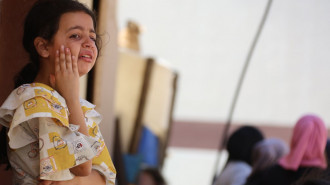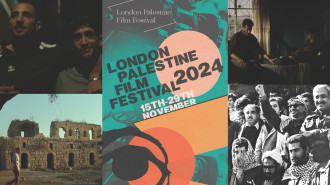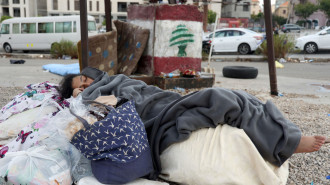TootArd: Trailblazing fusion music from the occupied Golan Heights
How? By tackling obstacles head-on via a musical response, and reshaping their identity entirely.
To say the group has undergone wholesale changes in their sound would be a gross understatement. But that's precisely what has happened with their forthcoming new album, Migrant Birds. They've switched from desert blues on their previous record Laissez-Passer to a disco sound reminiscent of early 1980s Cairo or Beirut.
But why the significant change? Hasan Nakhleh, part of the duo, told The New Arab that "it all depends on which instrument is in our hands!"
"My brother Rami and I grew up playing different instruments like Oud, Guitar, Violin, Arabic Synth/Organ and Percussions. With our musical family, we played classical Arabic music daily," Hasan explained.
He said the musical duo listened to lots of other genres and styles from around the world and loved everything they heard, incorporating different elements into their endless experimental jam sessions with friends.
 |
Despite a global pandemic and living under occupation in the Golan Heights, musical duo TootArd take life's challenges in their stride |  |
"There were too many influences all the time than what we could put in an album. I guess we found out that we like to produce music, without any genre or style commitment, regardless if this was good or not in terms of music business and marketing."
| Instagram Post |
While creating Laissez-Passer they were jamming to grooves driven by electric guitar riffs and quarter notes.
"It took us to desert blues and Arabic Maqam, which I'm sure we will revisit again at some point," Hasan said.
"But while creating Migrant Birds my starting point was synth, so all the nostalgic Arabic 80s and 90s songs came up, and the disco was inviting! What will come after Migrant Birds is probably any actual exciting sound fused into our emotional and musical memory."
With disco influences obvious on Migrant Birds, who were the artists or groups that formed the most significant inspirational reference points? As the 1970s and 1980s were a golden era for Arabic disco music, Hasan gives some quite unusual names that are as far from disco as humanly possible.
"Dance music in general, but the roots of the music here run deeper to musicians like keyboardist Magdi al-Husseini and Ihsan Al-Munzer. They were some of the first to introduce synthesizers to the classical Arabic style, or Omar Khorshid, who pioneered the addition of electric guitar and worked with the legendary Umm Kulthum. They were big influences on us."
Politically, the problems of the Golan Heights are compounded by the Syrian civil war and Israel's ongoing occupation since 1967, which has left its inhabitants in a quandary.
"The situation is still psychologically confusing, and driving the people I guess to adopt as a community an indie lifestyle," Hasan explains. "War in Syria on one side and on the other side at the moment, a green-washing wind farm project which confiscates 3,674 square kilometres of people's land and is being forced on them."
 |
TootArd are famously known for having no state or passports |  |
The Israeli project, in the area between Majdal Shams and Masada, has a tremendous impact on the agricultural and tourism sectors, which are a source of livelihood for many local residents. It also greatly limits the urban expansion of the two villages, creating a major housing crisis.
The wind farm project led to the most significant protests in the occupied Golan Heights since the 1980s, with a huge majority of the largely Druze population rejecting it.
Read more: Tamikrest: Desert blues in the longing for Tuareg freedom
If the political situation wasn't critical enough, there's also the Covid-19 crisis. As TootArd are based in the occupied Golan Heights, the pandemic knows of no nationality, creed or social status. TootArd and the people amid two conflicts are certainly no exception.
"In terms of Covid-19 measures, it is similar to other places around the world, people are at home," Hasan said. "But what it really means is that during this critical period of the turbines project, curfews are forcing people to give up their protest and put themselves at risk if they tried. This constitutes an ominous threat to the area."
TootArd are famously known for having no state or passports, but as far as the world is concerned mobility is often something taken for granted. Having said that, does not owning a passport get any easier or harder with this coronavirus crisis and their 'laissez-passer' papers?
Read more: Kamilya Jubran: The innovative Palestinian musician on 'Wa', her most ambitious album to date
"Well, 'regular' musicians with passports can start travelling and playing as soon as this virus crisis ends, I suppose. But for us, I assume it will get a bit harder, especially if the embassies are closed or had limited or shorter working times," Hasan said.
 |
The good thing is, when there is music there is hope |  |
"This means our band members will need even more time to obtain visas, and this will affect our international touring plans. Because every time a stateless musician travels, he first needs to make the rounds on some of the world's most beautiful embassies, which are hungry for our biometric data."
Hasan said he feels for his European musician friends, with some in the UK even experiencing something similar to them with the Brexit crisis.
"But the good thing is, when there is music there is hope, so no doubt we'll defeat any unknown obstacles that might show up along the way and we'll make it to the music lovers out there," he said.
"The live music experience is just too good to be giving up."
Yousif Nur is a journalist who writes freelance for various publications including the Guardian, Dazed and Confused and Notion Magazine. He writes mostly about music
Follow him on Twitter: @yousifnur
Read more from The New Arab Meets special section below:
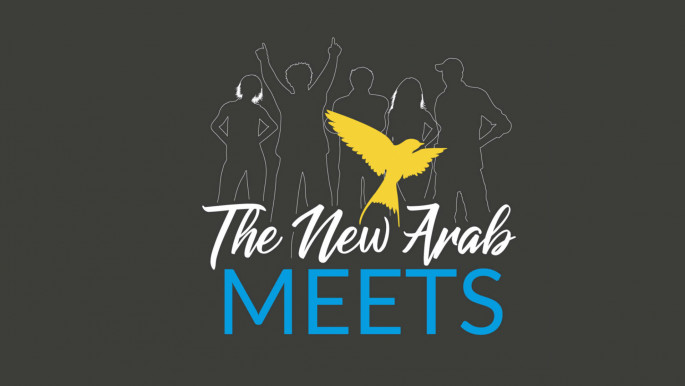 |
|

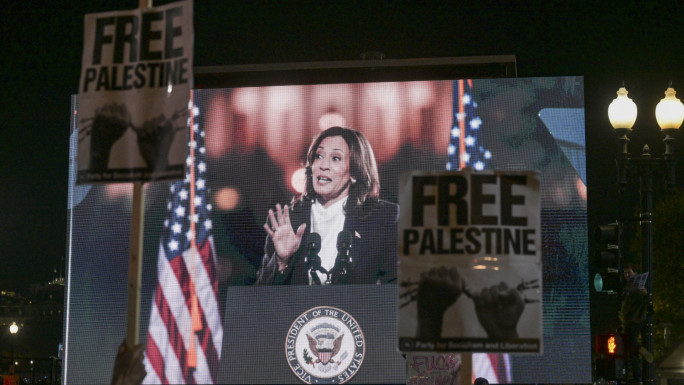

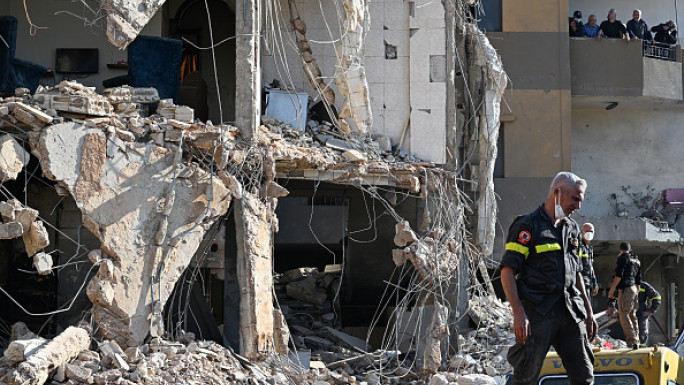

 Follow the Middle East's top stories in English at The New Arab on Google News
Follow the Middle East's top stories in English at The New Arab on Google News
